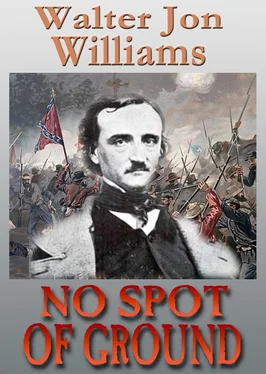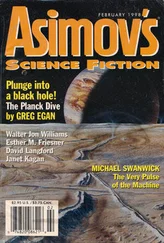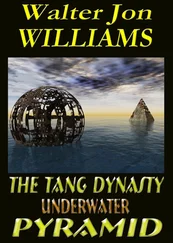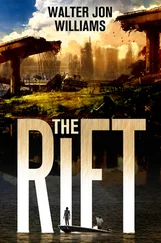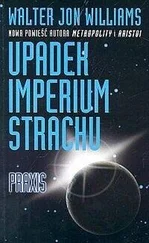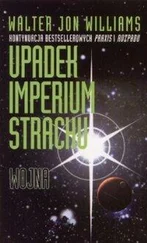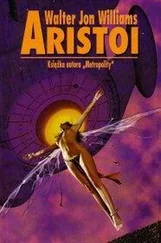Walter Williams - No Spot of Ground
Здесь есть возможность читать онлайн «Walter Williams - No Spot of Ground» весь текст электронной книги совершенно бесплатно (целиком полную версию без сокращений). В некоторых случаях можно слушать аудио, скачать через торрент в формате fb2 и присутствует краткое содержание. Год выпуска: 0101, Издательство: Baen Books, Жанр: Альтернативная история, на английском языке. Описание произведения, (предисловие) а так же отзывы посетителей доступны на портале библиотеки ЛибКат.
- Название:No Spot of Ground
- Автор:
- Издательство:Baen Books
- Жанр:
- Год:0101
- ISBN:нет данных
- Рейтинг книги:3 / 5. Голосов: 1
-
Избранное:Добавить в избранное
- Отзывы:
-
Ваша оценка:
- 60
- 1
- 2
- 3
- 4
- 5
No Spot of Ground: краткое содержание, описание и аннотация
Предлагаем к чтению аннотацию, описание, краткое содержание или предисловие (зависит от того, что написал сам автор книги «No Spot of Ground»). Если вы не нашли необходимую информацию о книге — напишите в комментариях, мы постараемся отыскать её.
No Spot of Ground — читать онлайн бесплатно полную книгу (весь текст) целиком
Ниже представлен текст книги, разбитый по страницам. Система сохранения места последней прочитанной страницы, позволяет с удобством читать онлайн бесплатно книгу «No Spot of Ground», без необходимости каждый раз заново искать на чём Вы остановились. Поставьте закладку, и сможете в любой момент перейти на страницу, на которой закончили чтение.
Интервал:
Закладка:
Beyond the vague impression of gentle rolling hills, he could see little. Then he lifted his head as he heard the challenging scream of a stallion. The sound came from away north, well past the entrenchments.
The mare picketed behind the entrenchments raised its head at the sound. The stallion challenged again.
Then another horse screamed, off to the right, and another. The mare flicked its ears and gave an answer.
The mare was in heat, Poe realized. And she was flirting with Yankee horses. None of his men could be out that far.
The wind had carried the mare’s scent north, to the nose of one northern stallion. Other stallions that hadn’t scented the mare- or perhaps geldings that hadn’t entirely forgotten their masculine nature- nevertheless answered the first horse’s challenge.
Poe’s head moved left to right as one horse after another screamed into the night. Sorrel’s map hadn’t shown the Yankee line stretching that far, well south of the tributary, beyond Clingman’s brigade to where Fitz Lee’s cavalry was supposed to be, out on his right flank.
He listened as the horses called to one another like bugles before a battle, and he thought: The Yankees are moving, and they’re moving along my front .
Suddenly the warm south wind turned chill.
How many? he thought.
Sobbing in the mist like men in the extremes of agony, the crying horses offered no answer.
*
He became a child again, living with Evania in her perfect kingdom, that winding blue river valley west of Baltimore. Never before had he known rest; but there he found it, a cease from the despairing, agonized wanderings that had driven him, like a leaf before a black autumn storm, from Richmond to Boston and every city between.
At last he knew what it was to be a gentleman. He had thought he had achieved that title before, through education and natural dignity and inclination? but now he knew that before he had only aspired to the name. Mr. Allan fancied himself a gentleman; but his money was tainted with trade, with commerce and usury. Now Poe understood that the highest type of gentleman was produced only through ease and leisure? not laziness, but rather the freedom from material cares that allowed a man to cultivate himself endlessly, to refine his thought and intellect through study and application of the highest forms of human aspiration.
He was not lazy. He occupied himself in many ways. He moved Mrs. Clemm to Baltimore, bought her a house, arranged for her an annuity. He added to the mansion, creating a new facade of Italian marble that reflected the colors of the westering sun; he employed the servants to move tons of earth in order to create a landscape garden of fully forty acres that featured, in the midst of a wide artificial lake, an arabesque castle, a lacy wedding-cake gift to his bride.
He had always thought landscape gardening fully an equal of poetry in its ability to invoke the sublime and reveal the face of the deity. In this he was a disciple of de Carbonnieres, Piranesi, and Shenstone: The garden was nature perfected, as it had been in the mind of God, a human attempt to restore the divine, Edenic sublimity. He crafted his effects carefully- the long, winding streams through which one approached Poe’s demiparadise in swan-shaped boats, the low banks crowded with moss imported from Japan, natural-seeming outcroppings of uniquely colored and textured rock. At the end was a deep, black chasm through which the water rushed alarmingly, as if to Hades? but then the boat was swept into the dazzling wide lake, the sun sparkling on the white sand banks, the blue waters- and then, as the visitor’s eyes adjusted from blackness to brightness, one perceived in the midst of a blue-green island the white castle with its lofty, eyelike windows, the symbol of purest Mind in the midst of Nature.
Nothing was suffered to spoil the effects that had taken a full six years to create. Not a stray leaf, not a twig, not a cattail was permitted to sully the ground or taint the water? fully thirty Africans were constantly employed to make certain that Poe’s domain was swept clean.
It cost money- but money Poe had, and if not there was always more to be obtained at three and one half percent. His days of penny-counting were over, and he spent with a lavish hand.
He fulfilled another ambition: he started a literary magazine, the Southern Gentleman , with its offices in Baltimore. For it he wrote essays, criticism, occasional stories, once or twice a poem.
Only once or twice.
Somehow, he discovered, the poetry had fled his soul.
And he began to feel, to his growing horror, that his loss of poetry was nothing but a just punishment.
True poetry, he knew, could not reside in the breast of a man as faithless as he.
*
The Starker house on its small eminence stood hard-edged and black against a background of shifting mist, like an isolated tor rising above the clouds. It was a little after four. The sun had not yet risen, but already the eastern horizon was beginning to turn gray. The ravens, coming awake, cackled and muttered to one another as they shook dew from their feathers.
Poe leaned on his stick before a half-circle of his brigadiers and their mingled staffs. Hugin and Munin sat on their perch behind him. Poe was in his uniform of somber gray, a new paper collar, a black cravat, the black doeskin gloves. Over his shoulders he wore a red-lined black cloak with a high collar, an old gift from Jeb Stuart who had said it made him look like a proper raven.
Most of his life Poe had dressed all in black. The uniform was a concession to his new profession, but for sake of consistency with his earlier mode of dress he had chosen the darkest possible gray fabric, so dark it was almost blue.
There was the sound of galloping; riders rose out of the mist. Poe recognized the man in the lead; Fitzhugh Lee, Robert Lee’s nephew and the commander of the cavalry division on his right. He was a short man, about Poe’s height, a bandy-legged cavalryman with a huge spade-shaped beard and bright, twinkling eyes. Poe was surprised to see him- he had asked only that Lee send him a staff officer.
He and Poe exchanged salutes. “Decided to come myself, General.” He dropped from his horse. “Your messenger made it seem mighty important.”
“I thank you, sir.”
Fitz Lee, Poe realized, outranked him. He could take command here if he so desired.
He would not dare , Poe thought. A cold anger burned through him for a moment before he recollected that Fitz Lee had as yet done nothing to make him angry.
Still, Poe was uneasy. He could be superseded so easily.
“I think the Yankees are moving across my front,” he said. He straightened his stiff leg, felt a twinge of pain. “I think Grant is moving to his left again.”
The cavalryman considered this. “If he wants Richmond,” he said, “he’ll go to his right. The distance is shorter.”
“I would like to submit, apropos , that Grant may not want Richmond so much as to defeat us in the field.”
Fitz Lee puzzled his way through this. “He’s been fighting us nonstop, that’s the truth. Hasn’t broken off so much as a day.”
“Nevermore,” said one of the ravens. Fitz Lee looked startled. Poe’s men, used to it, shared grins. Poe’s train of thought continued uninterrupted.
“Moreover, if Grant takes Hanover Junction, he will be astride both the Virginia Central and the Richmond and Fredericksburg. That will cut us off from the capital and our sources of supply. We’ll have to either attack him there or fall back on Richmond.”
“Mebbe that’s so.”
“All that, of course, is speculation? a mere exercise of the intuition, if you like. Nevertheless, whatever his intent, it is still an observed fact that Grant is moving across my front. Quad erat demonstrandum .”
Читать дальшеИнтервал:
Закладка:
Похожие книги на «No Spot of Ground»
Представляем Вашему вниманию похожие книги на «No Spot of Ground» списком для выбора. Мы отобрали схожую по названию и смыслу литературу в надежде предоставить читателям больше вариантов отыскать новые, интересные, ещё непрочитанные произведения.
Обсуждение, отзывы о книге «No Spot of Ground» и просто собственные мнения читателей. Оставьте ваши комментарии, напишите, что Вы думаете о произведении, его смысле или главных героях. Укажите что конкретно понравилось, а что нет, и почему Вы так считаете.
